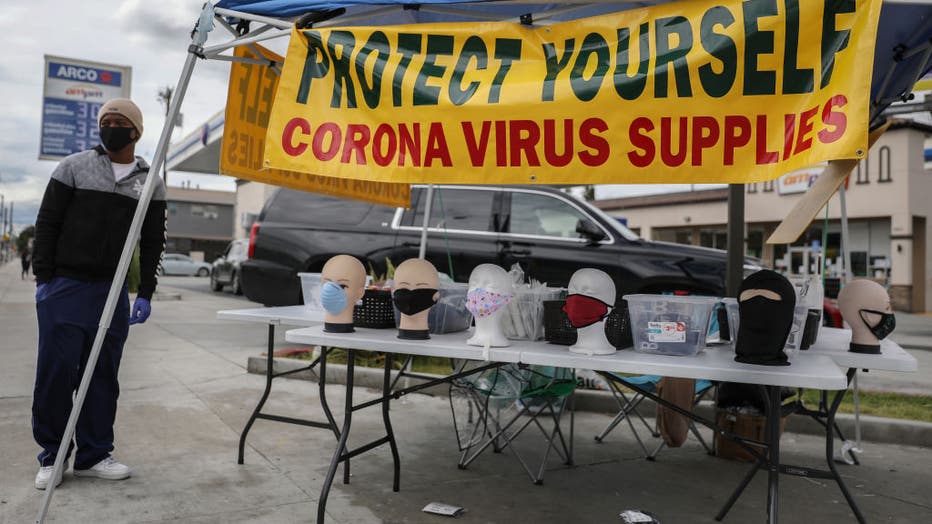UCLA study touts effectiveness of masks in reducing COVID-19 spread

UCLA study touts effectiveness of masks in reducing COVID-19 spread
A recent UCLA study is investigating the effectiveness of various face coverings that reduce cough-generated airborne particles.
LOS ANGELES (KTTV/CNS) - A recent UCLA study is investigating the effectiveness of various face coverings that reduce cough-generated airborne particles.
Researchers say exposure to respiratory droplets contribute greatly to the spread of COVID-19.
Even a simple cloth mask provides significant protections against COVID-19 transmission, reducing the spread of respiratory droplets by as much as 77%, UCLA researchers said.
"We found that a simple cough could send particles more than six feet away, without face coverings. At about a foot away from the coughing source, a face shield by itself provided the least protection (4%). In contrast, a cloth mask reduced cough particles by 77%, and the combination of face shield and cloth mask improved the particle reduction to 89%,'' said Dr. Yifang Zhu, a professor in the Department of Environmental Health Sciences and associate dean for academic programs at the UCLA Fielding School of Public Health.

LOS ANGELES, CALIFORNIA - APRIL 10: A worker wears a face mask and gloves at a stand selling coronavirus pandemic supplies, including face masks, on April 10, 2020 in Los Angeles, California. Beginning today, residents of Los Angeles and workers are
"This is a no brainer. It almost feels like do I really need to do this study to convince people [that masks work], but at the end of the day, yes, I think people want to see the data, the evidence, rather than me just saying we know the mask will help," said Zhu.
Zhu acknowledged how mask-wearing is normal in other nations. In Singapore, it's mandatory to wear a mask and people are fined if they get caught without one in public.
"[This study] will hopefully reduce some confusion, and clarify some of the questions," said Zhu.
Zhu's team, which includes UCLA scholars Liqiao Li and Muchuan Niu, set up a test space in a lab and measured the particle number concentration (PNC) and particle size distribution under seven different conditions: (1) no face covering; (2) face shield only; (3) cloth mask; (4) face shield + cloth mask; (5) surgical mask; (6) face shield + surgical mask; (7) N95 respirator or equivalent (i.e., KN95 mask).
RELATED: Stay up to date on all coronavirus-related information
"To minimize the infection risk of aerosol transmission, stricter mitigation measures should be adopted for indoor environments, which are more likely to be enclosed and crowded,'' Li said. "One of the simplest is a mask.''
Their article was published in the current edition of the peer-reviewed journal Aerosol Science and Technology, and can be viewed here.
City News Service contributed to this story.
Get your top stories delivered daily! Sign up for FOX 11’s Fast 5 newsletter. And, get breaking news alerts in the FOX 11 News app. Download for iOS or Android.

